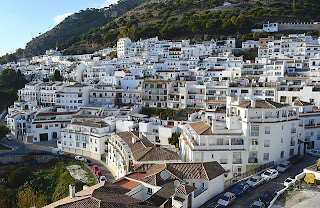Ways to Make Your Home Greener
There are
loads of ways to improve energy efficiency, decrease energy use and make your
home greener, and many of them are simple and cheap.
This guide explores low
cost / no cost methods, as well as investment ideas.
Insulation and Draught-proofing
A properly
insulated home wastes less heat in the colder months and stops heat from
getting in during the hotter months. Wall and floor insulation can be
expensive, but roof insulation is fairly low cost. Adding thick drapes or
blinds to your windows is a low cost option which can really reduce unwanted
heat flow.
Air Conditioning Alternatives
Air
conditioners use lots of energy, but there are lots of greener ways to keep
your home cool, and these can reduce your reliance on energy-intensive air
conditioning. Use reflective fabrics and drapes on the windows and doors. Plant
trees and shrubbery to increase shade and reflect light away from your home.
Washing and Cooking
Use low
temperature settings for clothes washing – you can still get great cleaning
results if you use special low-temperature detergents. Always wait until you
have a full load until you wash, and try to limit your use of the dryer. The
oven uses a great deal of energy, so switch to other cooking appliances that
use less energy, such as microwaves and stoves.
Home Cleaning
Instead of
using expensive commercial cleaners with toxic chemicals, you can make your own
from common household products – and these are usually much greener than
commercial products. With ingredients such as plant oils, lemon juice, vinegar,
baking soda, washing soda and hydrogen peroxide, you can make effective green
cleaning products for the home.
Choose Green Power
For an extra
cost, your energy provider may give you the choice to have some (or all) of
your electricity delivered from renewable sources. Check with your provider to
see if green deals are available.
Water Control
There are
cheap products available that you can attach to your toilet/cistern to reduce
the amount of water used in each flush. If you have an older toilet, see if you
can adjust the float valve to reduce the water intake. Aerators reduce the
density of water that comes out of your faucets – you can cut your yearly water
usage by up to half with faucet aerators.
In the Garden
Only use
compost & never use synthetic fertilizers and chemical pesticides. When
buying new plants, think about how much water they need to survive. If you have
a small garden, use a push-mower instead of an electric mower.
Use a water butt
to collect rain water for watering your plants.
Home Lighting
There are
two major energy-efficient lighting options: LEDs and compact fluorescents.
Both of these types of bulbs can now deliver the same levels of brightness as
traditional bulbs, and though they are more expensive, they are actually
cheaper in the long run because they use less power and last for much longer
than regular bulbs.
Turn Electronics Off
Never use
the ‘standby’ mode on electronics, as this wastes energy. Turn off your devices
completely at the wall.
Windows
Improving or
replacing your windows can dramatically reduce heat waste and draughts.
The
high cost options are to install double glazing with energy efficient window
frames, while a cheaper option is to fit insulating films to existing windows.
Rainwater Harvesting
Rainwater
harvesting systems might be a good thing to consider in areas where it is
important to conserve water. Advanced harvesting systems can supply water to
washing machines, toilets, showers and other appliances that require water.
If you are
thinking about rainwater harvesting, it is important to understand your
position and the potential efficiency and demand benefits. Agencies often state
that it is better first to improve home water efficiency before investing in a
harvesting system.
Grey Water Systems
With a grey
water system you recycle the wastewater from sinks, washing machines, baths and
showers. When used to supply toilets, you can cut your home’s water usage by
over a third.
There are many biological and mechanical systems available for
the treatment of grey water. If you are interested in building a grey water
system, you should follow the advice and guidance of your local environmental
authority.
Solar Panels
Solar panel
systems offer the prospect of renewable home electricity and renewable home
heating.
They are a significant investment, but because they can save you lots
of money (and even earn you money), over time they pay for themselves.
Solar water heating panels can be used to provide up
to a third of your home’s hot water requirements. This would reduce your energy
bills by a wide margin, as well as reduce your home’s non-renewable energy
consumption.
PV solar
panels deliver electricity to the home by converting the sun’s energy. Not only
do PV solar panels reduce your reliance on the electricity grid, you can
actually earn money by feeding the electricity you generate into the grid.
While PV solar panels work better in direct sunlight, they still work when the
weather is cloudy.
Ground Heat Pumps
Ground
source heat pumps assist home heating during the winter and facilitate home
cooling during the summer. A typical ground heat pump system will use a small
network of underground pipes with water/antifreeze, connected to a home heat
pump. Heat taken from the ground can then be used with under-floor heating
systems and other home water heating systems.
Energy Efficient Appliances
Investing in
a new energy efficient appliance can be expensive, but it is certainly one of
the easiest ways to make your home greener. And don’t forget your appliance
will pay for itself in the long run by saving you money on your energy bills.
Think Green!
These are
just a few ways to reduce energy consumption and improve your home’s energy
efficiency and eco-friendliness.
Think about your home life and how you can
improve your actions and make greener choices.











Comments
Post a Comment